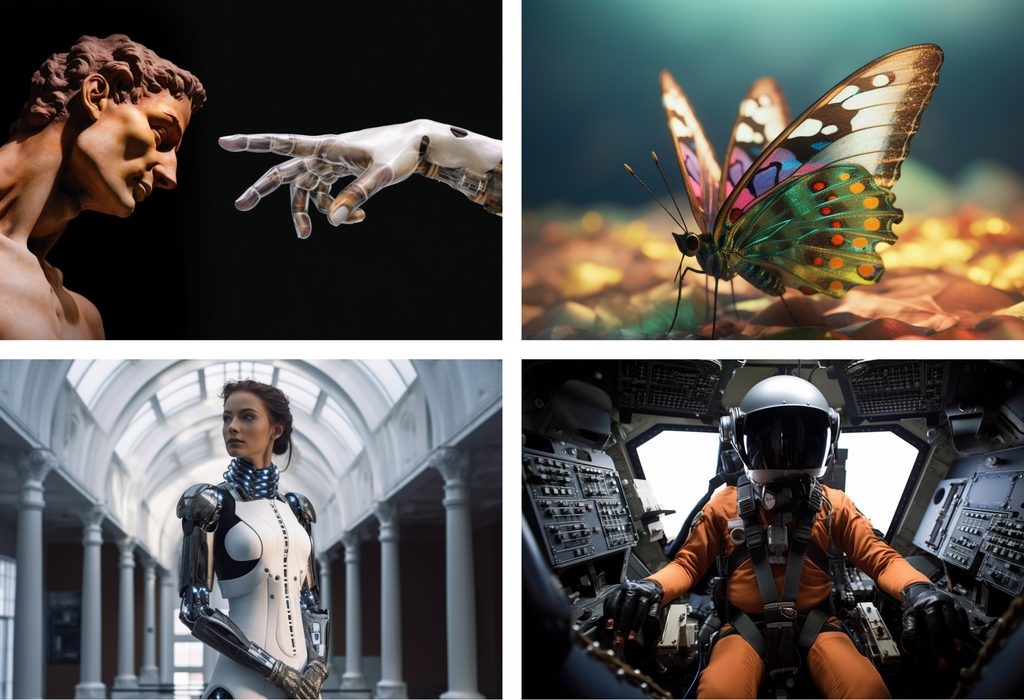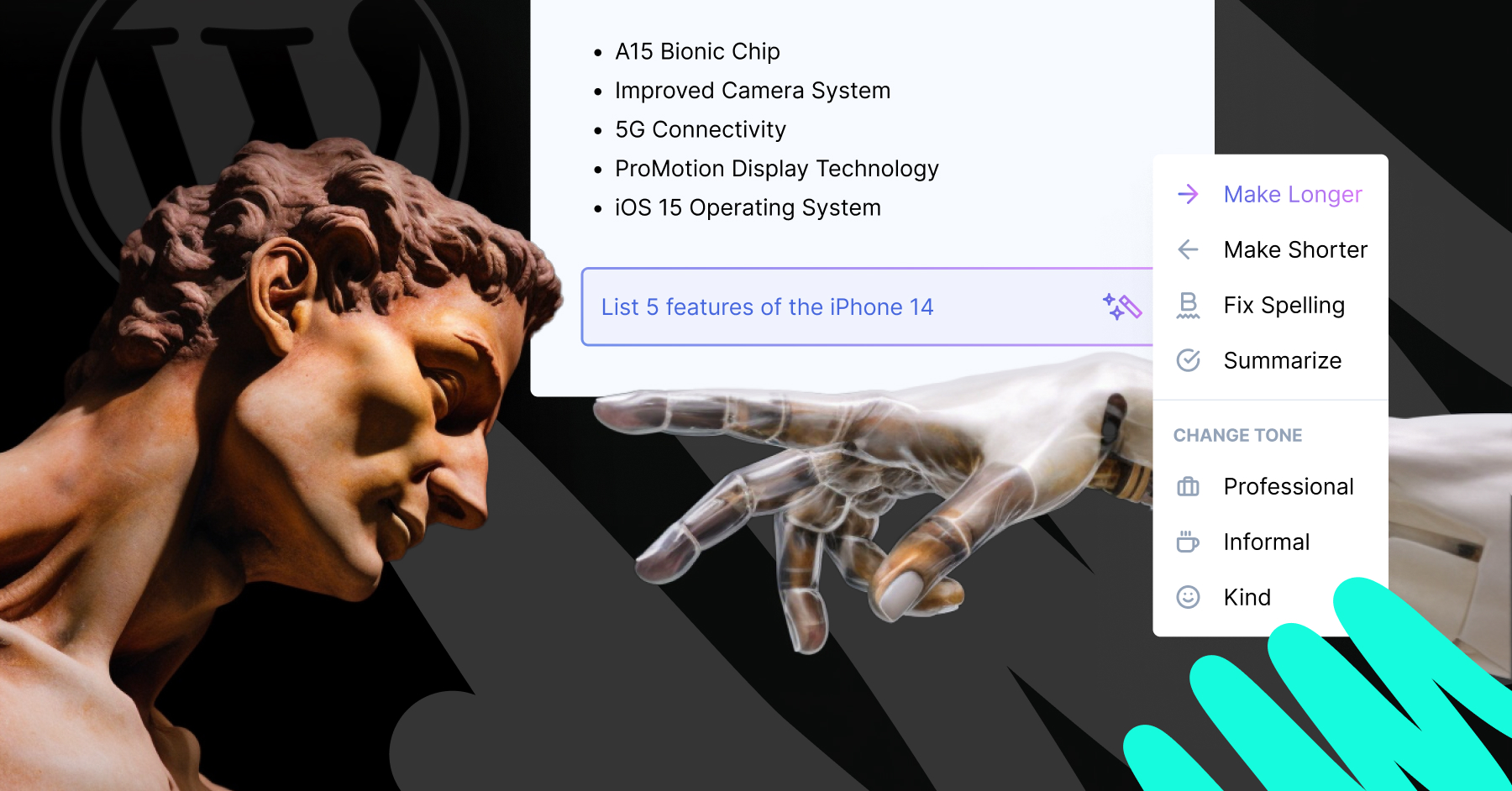If you’ve been following the recent rise of AI technologies, specifically ChatGPT (and who hasn’t!) you’ve likely wondered how it will be integrated into tools and products you already use. I certainly did, which is why I’ve been working with the rest of Human Made on ways we can bring AI to WordPress.
Taking a native-first approach to integrating generative AI into WordPress, we’ve been experimenting with approaches to a “WordPress Copilot” that can “speak” Gutenberg / block-editor. And we can share the first results of that here.
Copy-pasting paragraphs between ChatGPT and WordPress only goes so far, while having the tools directly embedded in the editor for block layout generation, auto-linking, formatting, translation summarisation and more open up a world of possibilities and productivity wins for content creators.
Check out the short video below showcasing generative AI integrated natively into the block editor. As you can see, the AI is able to understand and generate rich content using WordPress blocks.
The approach we took with this demo is to provide low-friction augmentation in the authoring processes. Custom hotkeys are used to shortcut a switch to the AI context, and the ability to insert new content as well as modify existing content creates many possibilities. The interface to a linear tool such as ChatGPT (or chat interfaces in general) don’t make it easy to do non-linear writing and editing. Copilot can work across multiple block selections and multi-block generation, as the way content is produced with the block editor is typically a composite of text, tables, columns, images and more.
With the rise of ChatGPT and the recent release of GTP-4 it’s clear that AI is going to have a huge impact on the future. Not just for technology, but for everyone using it.. and everyone not using it. I say “the future” but for millions of ChatGPT users it’s already had a profound impact on the way people work.
Over the last year OpenAI and similar LLM models have been disrupting industry after industry. In the field of programming GitHub Copilot is making steady progress to becoming the essential tool for developers. OpenAI’s latest GPT-4 model with significant improvements is a leap forward for copy writing, moving beyond the “corporate press release” style of previous GPT models.
Making use of generative AI in WordPress has largely been a task of copy-pasting between tools, and therefore mostly only usable in text-based articles or importing images from tools like Midjourney or Stable Diffusion. While plugins have bridged this gap to make it more convenient to important generative content, we feel the bigger opportunity here is to augment capabilities and bring these tools natively into the product or platform. This is why we focused on bringing this functionality into the block editing experience.

As the availability to GPT-4 (and with it larger token limits) increases, we see a clear path of improvement to what we’ve shown today. The data and information that is stored and available to the Content Management System is ideal for model-training and building a corpus of data specific to the user. Generating, improving and suggesting content of all types that is specific to the data set will be another lead forward in the utility of these tools.We see a future where AI will support and enhance the work we all do, and see the necessity to integrate the technology deeply into the tools and solutions we create. Even with the relative immaturity of language models we’ve felt the impact they’ve had in productivity gains, idea generation and editing.
We’re going to continue iterating and experimenting with what’s possible with this integration – this is only the first step. You can check out part 2 right here.
If you’d like to join us on the journey, or explore how we could implement these tools for your brand, be sure to let us know.
